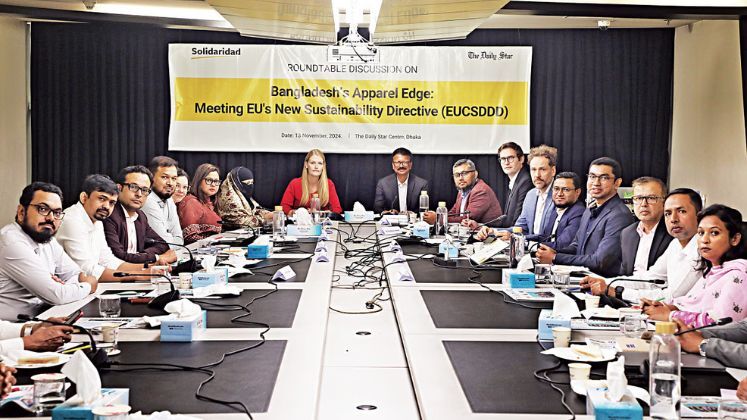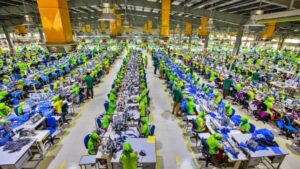
In order to safeguard its garment sector before it leaves the list of least developed countries (LDCs) in 2026, experts caution that Bangladesh must closely follow the EU CSDDD. In order to achieve net zero carbon emissions by 2030, the directive, which went into force in July, requires sourcing businesses to comply with a number of important requirements.
Industry leaders stressed the need for local suppliers to improve sustainability at a recent roundtable titled Bangladesh’s Apparel Edge: Meeting EU’s New Sustainability Directive, organised by The Daily Star and Solidaridad. They also urged global brands to raise payment prices to help cover compliance costs.
Solidaridad’s Selim Reza Hasan emphasised the significance of raising worker productivity and energy efficiency as Bangladesh seeks to develop into a sustainable production powerhouse. As EU member states incorporate the regulation into their national legislation over the course of the next two years, he pointed out that compliance will be essential.
Solidaridad’s program manager, Muhammad Yousuf Khan, emphasised that noncompliance could have legal consequences but, if handled properly, could also offer Bangladesh opportunities. Although consumers in the EU are becoming more interested in purchasing products made of sustainable materials, he said that they frequently pay less than the production expenses necessary to comply.
Participants, who included government and organisation leaders, talked on the difficulties that compliance presents, especially for small and medium-sized businesses (SMEs). Buyers were urged to provide reasonable prices in order to assist regional exporters in fulfilling sustainability requirements.
In order to guarantee a seamless transition towards sustainability while preserving the competitiveness of Bangladesh’s apparel sector, the discussion came to an agreement regarding the necessity of active cooperation between local exporters, foreign buyers, and government agencies.






